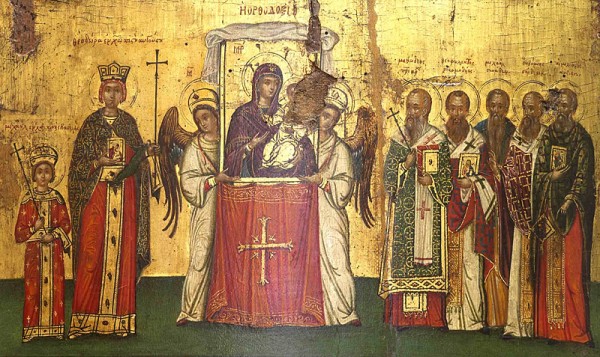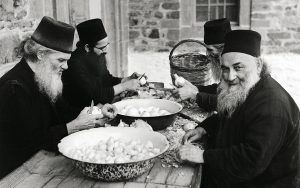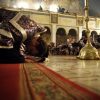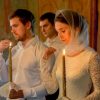We all take Orthodoxy for granted and we forget all about Synods, Saints and Holy Fathers. We are mostly ignorant that torture, prison, exile, even death were things experienced by previous generations, even close to us, just to keep the faith. Persians, Turks, Communists, even modern secularists all tried to break the faith but all failed.
However the greatest danger comes always from within: heresies. The most dangerous are things that seem right, are apparently well intended but are actually not. In the First ecumenical council one iota (the letter i in Greek alphabet) made the difference between Orthodoxy and heterodoxy (homoousios vs homiousios).
The last ecumenical council argued over what a kiss represents. What do I believe when I venerate an icon? Do I worship an idol or the prototype? A subtle difference that still lingers, misunderstood, among modern Christians that have forgotten, or never heard of, the 7th ecumenical council.
We take Christianity in General for granted and ignore the Tradition. We simply say the world starts with us. We are smart enough to figure it out. Why then can’t we figure out things simple like how the material world works? How many understand quantum mechanics or relativity or even what matter is? Would we try to figure it out ourselves? Don’t think so. We’ll have to go to a scientist to explain it.
But if the world is so difficult to understand, which is physical and material, how much more difficult would be to understand the uncreated God? Why do we suddenly forget our limits and we all become experts when God is concerned ? This does not make sense to me.
What it makes sense is to look back and learn. The knowledge gathered by the catholic (universal, whole, complete) body of the Church does not expire at the next scientific symposium, but lasts forever because God IS the same, yesterday, today and tomorrow. We can learn so many things just by looking at the calendar.
Take the 40 martyrs of Sevastia we celebrate today. They died long time ago but they bring forth a beautiful story of persistence in the faith in front of a persecuting authority, an episode of amazing Christian solidarity. But does it pertain to us, today? After all it happened so many years ago… A recent piece of news from North Korea comes to argue that it actually does. 33 Christians are right now condemned to death simply for being thirsty for the Word of God. We are all shocked and we want the world to know this, we want all people to remember this, we do not want them to die, or, at least, not in vain!
See the link and the lesson? By linking the past with the present using stories like this we learn that the world continues to hate Christianity because it scares the people in authority. It gives people hope and something to even die for. It does not conform to ever changing human rules that are there to please the fashion of the time, but stays close to the never changing wisdom of God.
Hope does not die with the martyrs but lives on through their stories. That’s why their stories were written in the first place in the menaia and the synaxaries. That’s why churches were built on their graves. That’s why candles burn in front of their icons telling their stories.
Today we say remembering the saints is not necessary, it’s burdening and old fashioned. But it is absolutely necessary. I take comfort knowing that in the Orthodox monasteries all saints are remembered daily through the holy services.
Through the faith of the saints our faith is given purpose and backbone. Christianity does not start with us, but we are the distilled of many past generations that have not sacrificed themselves in vain, but they built, prayer by prayer, what we have today.
Let’s remember them, let’s honor them with icons and hymns and praise, because in honoring them we honor God whom they loved and sacrificed their lives for!




















